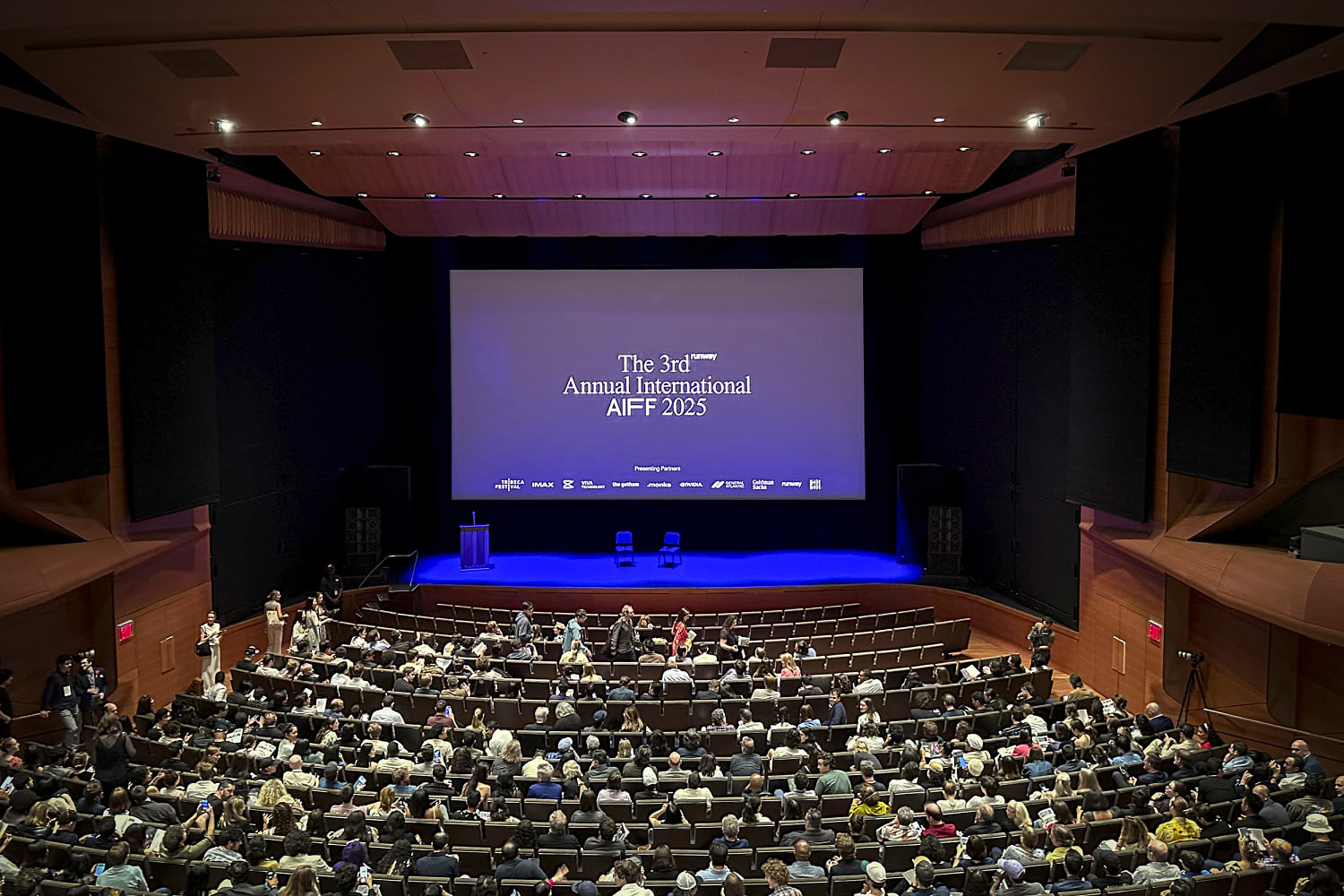
Across Hollywood, talking about it publicly can sometimes be taboo. Using it without disclosing that you did could make you the center of controversy. And protesting its use has been the norm.
But even amid widespread vocal pushback against generative artificial intelligence, industry leaders say its use in film and TV is slowly becoming mainstream. More filmmakers are using evolving AI tools, and studios are partnering with AI companies to explore how they can use the technology in content creation.
“It’s being used by everybody that doesn’t talk about the fact that they’re using it,” Michael Burns, vice chairman of Lionsgate, said during a panel at the third annual Runway AI Film Festival in Los Angeles last week.
Lionsgate, which is behind hits like the “John Wick” and “Hunger Games” franchises, signed a deal with Runway last fall allowing its video generation model to train on the studio’s movies and TV shows. Burns joked that AI tools are like the Ozempic of the film industry, referring to the popularity of the semaglutide-based weight loss drug.
Burns was among hundreds — including a mix of creatives and execs — who attended the AI video company’s showcase of user-submitted short films made with generative tools. The festival, which was also held in New York City this month, ballooned from 300 film submissions in its first year to 6,000 submissions this year, its organizers said.
While using AI in film isn’t completely new, the technology has continued to stoke concerns among creatives. AI was a sticking point during the 2023 writers and actors strikes against studios, with creatives seeking assurances that their work wouldn’t be replaced by the technology.
Runway CEO Cristóbal Valenzuela, however, is optimistic about AI’s impact on the labor force, telling reporters before the Los Angeles festival that history has “proven once and again” that industries can adapt to new technologies.
AI-generated video-making has taken off even as it remains controversial. The technology has given rise to music videos to brand advertisements to nonconsensual deepfakes. Though AI videos have frequently been marked by telltale distortions, such as extra fingers or nonsensical physics, Google’s latest video generation model, Veo 3, shocked the internet last month with how seemingly flawless its outputs were.
“There are going to be new industries” as a result of AI, Valenzuela said. “Just the hard thing is it’s really hard to understand these industries when they’re new; we have never experienced them.”
The company has increased its presence in Hollywood in the past few years.
Burns said the partnership between Lionsgate and Runway is an attempt to create higher-quality content for lower prices.
“Even a year or two years ago, there was no chance that the output was going to be able to be projected on the big screen without you seeing gaps or somebody with three arms or a dragon that didn’t look like a dragon,” Burns added. “And now, today, it’s a completely different place.”
Runway also recently reached a deal with AMC Networks, giving it access to Runway’s AI tools for use in marketing materials and TV development processes, such as pre-visualization or special effects ideation.
All 10 of the films shown at the festival included generative video, but not all were made entirely with AI. The shorts, which were created in a variety of animated and photorealistic styles, appeared to lean into the more absurdist themes made possible by generative tools.
One followed the perspective of a chicken on its way to prison. Another offered life lessons through a small insect’s journey. And another painted a scene of human souls desperate to reclaim their bodies after Earth’s collapse.
Other AI companies have also upped their visibility in the industry in recent years.
OpenAI, which is behind ChatGPT, held its own AI film screenings this year in New York, Los Angeles and Tokyo to tout its popular text-to-video model Sora. The tool, launched in early 2024, stirred both buzz and panic when the company first teased its hyperrealistic generation capabilities.
Last year, the Tribeca Film Festival partnered with Runway and OpenAI to highlight more short films that leveraged AI.
Even some film schools appear to be hopping on the AI bandwagon. Elizabeth Daley, dean of the University of Southern California’s School of Cinematic Arts, said AI is being embedded in various courses, including one focused on AI creativity. She said the school encourages students to explore AI as long as it doesn’t become “an excuse not to work.”
“We need to stay in that conversation. We need to stay in the struggle to make sure that the tools that are developed are actually the tools that writers, directors, producers, cinematographers, animators need to do their work,” Daley said at a panel at the Runway film festival. “And those will create other jobs. No doubt.”

Leave a Reply